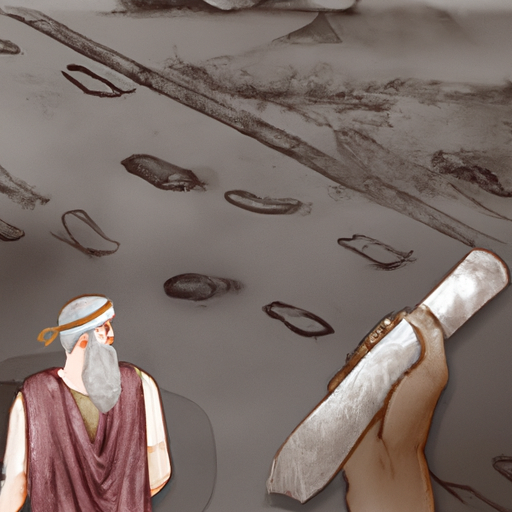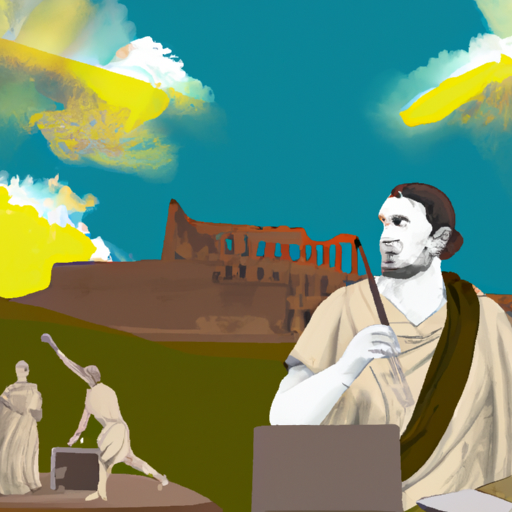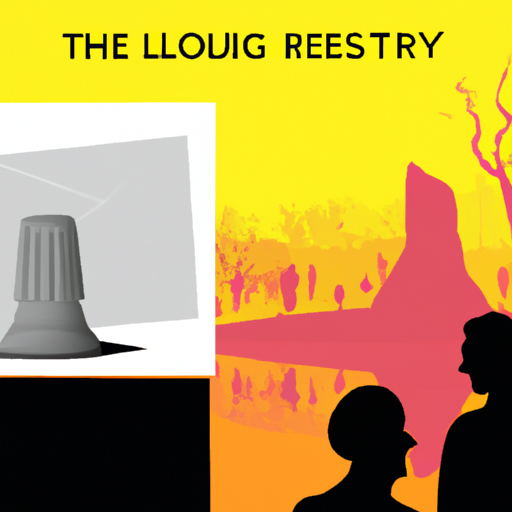History of Christianity: Who Created It and How?
Unearth the past of Christianity and unearth who was responsible for its genesis! Delve into the mystery of who spawned this faith and explore the secrets that have been kept hidden for centuries. Uncover the clues and unravel the enigma surrounding this religion’s origin. Dig deep and uncover the truth about who crafted Christianity and why it has endured through time.
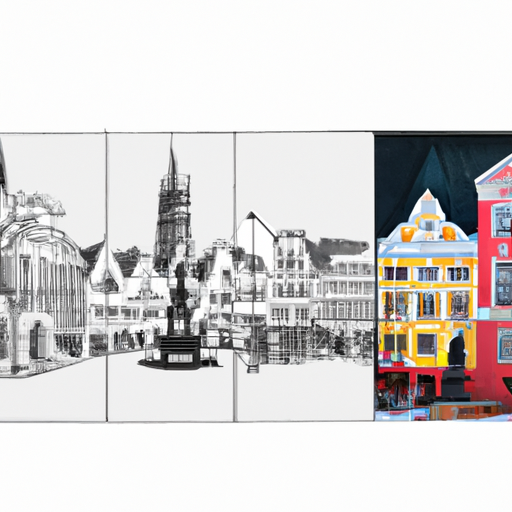
A perplexing and mysterious tale, the history of Christianity has captivated us for centuries. Who was responsible for its inception? What secrets lie hidden beneath the surface? Scholars have long sought to uncover the answers to these questions, but only now, with modern research and analysis of ancient evidence, can we begin to unravel this mystery. Unearthing forgotten facts from antiquity, we can gain a deeper insight into why Christianity has endured and how it has shaped our world.
.
Introduction

A mysterious figure, born in the ancient city of Bethlehem, Judea, in 4 BCE and whose teachings of love and salvation reverberated throughout the ages. This figure, Jesus of Nazareth, began preaching his message around 28 CE and quickly gathered a devoted following. After his passing in 33 CE, his disciples continued to spread his words across the globe. In an astonishingly rapid period of time, Christianity had grown exponentially and by 380 CE was declared the official religion of the Roman Empire. Since then it has become one of the most influential religious movements on earth – its power and reach truly remarkable.
– History of the Early Church and the Origins of Christianity
The early Church and the beginnings of Christianity are integral to comprehending its evolution. In the first century A.D., it was a small, persecuted faith in Palestine, yet today it is one of the most widespread religions on Earth. To understand this remarkable transformation, we must look at the history of early Christian communities.
The first disciples of Jesus were Jews who believed He was the promised messiah; after His death they formed a community devoted to His teachings and practices. This group endured hostility from both Jewish and Roman authorities, forcing them to disperse across the Roman Empire. As they ventured outwards, they shared their message with both Jews and non-Jews alike.
By 200 A.D., Christianity had become an influential religion in the Roman Empire; churches were constructed in major cities with bishops appointed to lead them. These churches served as places for worship and teaching as well as meeting points for Christian believers to congregate and bond over their faith.
In addition to setting up churches in urban areas, Christians also created monasteries in rural regions which provided a safe haven for them to practice their faith without fear of persecution or interference from outside forces. Monasticism was a key part of early Christian history; it enabled them to live out their beliefs without fear of retribution or obstruction from external sources.
As Christianity continued its spread throughout Europe during this period, it encountered various forms of opposition from pagan religions and other Christian sects such as Gnosticism and Arianism but despite these obstacles it still flourished until by 400 A.D., it had become one of the dominant religions in Europe.
At present, Christianity remains one of the world’s most prominent faiths with more than two billion adherents globally – an illustration of its incredible growth over time which can be seen through tracing its roots back to first-century Palestine and observing how it evolved through subsequent centuries up until now where it still holds immense sway today.
– Historical Context of Jesus and the Development of Christianity
An event of immense gravity in humanity’s chronicles, the history of Jesus and the growth of Christianity began with a small Jewish sect. As Jesus’ teachings and miracles gained traction, a new faith was birthed – Christianity. Spreading across the region, it eventually reached Rome where Emperor Constantine I accepted it in 313 CE, commencing its rise to one of the world’s most significant religions.
The ensuing centuries saw a swift expansion of Christianity around Europe and beyond, as missionaries were sent out to preach the gospel and monasteries were built for religious education. In addition, councils convened to debate matters such as church structure and doctrine, forming the basis for modern-day Christianity’s beliefs.
Presently, Christianity is one of the world’s major religions with an estimated 2 billion adherents worldwide. Its impact on politics, art, literature, science, and other aspects of society is far-reaching and will remain a subject of study for many years to come.
– The Influence of Jewish Traditions on the Formation of Christianity
The relationship between Christianity and Jewish traditions is a complex one, with their histories intertwined from the very beginning. From its earliest days, Christianity has taken much of its theology, liturgical practices, and moral teachings from Judaism. Jesus himself was a Jew who taught from the Hebrew Scriptures, and many early Christian theologians were also Jews.
Christianity has adopted much of the language and concepts found in Judaism, such as monotheism and covenantal relationships with God – elements which remain integral to Christian faith today. Liturgical practices have been heavily influenced by Jewish tradition too; prayer services, hymns, readings from Scripture – all these have their roots in Judaism. Even common symbols used in Christian worship like the cross find their origin in Judaism.
Moral teachings found in Christianity are often based on principles found in Judaism – both faiths emphasize mercy and justice towards others and encourage charity to those in need; while the Ten Commandments are foundational to both religions, they are viewed differently by Christians but remain an important source for ethical guidance within Christianity today.
It can be said that Jewish traditions have had a major impact on the formation of Christianity throughout history – from its theology to its liturgy to its moral teachings, there is no doubt that this influence can be seen throughout this religion’s evolution over time.
– How Roman Rule Impacted the Spread of Christianity
The mysterious, perplexing history of Christianity is inextricably linked with the ascent and descent of the Roman Empire. During its reign, this mighty empire was one of the most powerful forces on Earth, impacting many facets of life, including religion. As Christianity advanced across the empire, it encountered both acceptance and resistance from disparate groups. The impact of Roman rule on Christianity was momentous; it assisted in forming its development and expansion in multiple ways.
In 313 AD, Emperor Constantine issued the Edict of Milan which declared religious freedom for all citizens within the empire, providing a haven for Christians who had been persecuted by other governments or rulers. This edict enabled them to preach their faith without fear of reprisal or punishment; thus allowing Christianity to propagate further into Europe and beyond as more individuals were exposed to its beliefs and teachings.
Furthermore, Roman rule had an essential part in shaping Christian theology and doctrine. During this period, theologians such as Augustine of Hippo established theological frameworks that would become indispensable for later Christian thought and practice. Additionally, councils like those held at Nicaea (325 AD) and Constantinople (381 AD) created creeds that defined Christian beliefs about God, Jesus Christ, salvation, etc.; these creeds would become pivotal to Christian belief systems throughout much of Europe during this time.
Finally, Roman rule facilitated the growth of Christianity by providing infrastructure for its dissemination across Europe. The Romans constructed roads allowing missionaries to traverse greater distances than previously possible in order to spread their message with new populations; they also provided resources such as money and materials which were utilized in constructing churches and other places where people could gather together for worship services or study groups.
To sum up, it is evident that Roman rule had a strong influence on the spread of Christianity throughout Europe during this period in history. Through legal protection from persecution; shaping Christian theology through doctrinal frameworks and creeds; as well as providing infrastructure for its expansion across Europe – Roman rule made a major contribution towards helping Christianity evolve into one of today’s major religions worldwide.
– The Role of Missionaries in Spreading Christianity Throughout History
Throughout the ages, missionaries have been a major force in the propagation of Christianity. From the earliest days of the church, evangelists ventured far and wide to spread their faith and bring people into the fold. While some of these efforts were successful, others were met with opposition or even violence. Nevertheless, missionary work has had a profound impact on how Christianity is practiced around the world today.
In ancient times, Christian missionaries traversed cities and countries preaching about Jesus Christ and His teachings. They worked to create churches and foster local congregations, bringing new ways of worship to regions previously unfamiliar with them. During colonial times, missionaries aided in expanding European influence by converting native populations to Christianity. Though this had some positive effects on societies, it also led to subjugation and exploitation in some cases.
Nowadays, churches continue to send out missionaries in an effort to reach those who have yet to hear about Jesus Christ or experience His message of salvation. Missionaries are often sent into remote areas where traditional forms of evangelism are difficult due to language barriers or cultural differences; additionally, they may be placed in hostile environments where their safety is at risk as they share their faith with those who may not be open-minded towards it. Despite such daunting challenges, missionaries remain committed to spreading God’s word throughout the world so that all may come to know Him through Jesus Christ our Lord.
conclusion
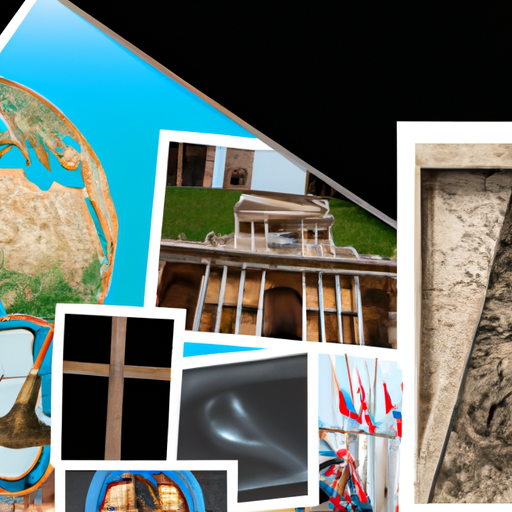
From its origins in the 1st century AD, Christianity has been a religion of mystery and wonder. Its central figure, Jesus Christ, has been venerated by countless believers throughout the ages, his teachings forming the foundation upon which this faith is built. With each passing era, new religious authorities have emerged to shape and guide Christian beliefs and practices. Theologians and philosophers have also contributed greatly to the evolution of this religion, their ideas taking it ever further along its journey through time.
.
Some questions with answers
Q1: Who created Christianity?
A1: Christianity was founded by Jesus Christ and his apostles.
Q2: When did Christianity begin?
A2: Christianity began with the life and teachings of Jesus in the 1st century AD.
Q3: What is the history of Christianity?
A3: The history of Christianity covers a period of over two millennia, from its beginnings in the 1st century AD to its present day form. It has been shaped by many different events, people, cultures, and movements throughout its long history.
Q4: What are the major branches of Christianity?
A4: The major branches of Christianity are Roman Catholicism, Eastern Orthodoxy, Protestantism, Anglicanism, and Mormonism.
Q5: How has Christianity changed over time?
A5: Over time, Christianity has changed in terms of beliefs and practices as it has adapted to new contexts and cultures. It has also had to confront various challenges such as science, secularism, and pluralism.
